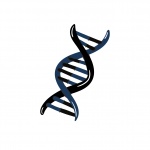

























To become a cardiologist, you are required to go through a long period of medical studies for acquiring licensure and board certification. After the completion of 10+2 with PCB, you can continue your studies towards becoming the cardiologist. The duration of MBBS course is 5 ½ years including a rotating internship of one year. The internship is mandatory, and one can complete the course only by completing an internship. The duration of MBBS academic course is 4 ½ years that comprises of nine semesters. MCI (Medical Council of India) is the only accreditation body in India for MBBS course. Medical Council of India is responsible for structuring/ revamping the MBBS course in India.
MD Medicine is a two-year postgraduate course that studies medicine in detail. This is one of the specialities under the medical stream that teaches and prepares future doctors. In the course of this study, prevention, diagnosis, and treatment of adult diseases. The basic eligibility required to pursue this course is MBBS from a recognized University. During this degree, students can specialize in their choice of subject and General Medicine is one of them. Students acquire in-depth knowledge and carry out experiments and develop their theoretical knowledge as well as practical skills.
DM Cardiology or Doctor of Medicine in Cardiology is a postgraduate cardiology medical course of 3-year, full time which is divided into four semesters. Cardiology is a medical speciality dealing with disorders of the human heart as well as some parts of the circulatory system. The main subjects’ students have to study in this discipline experiences in cardiac catheterization, pulmonary hypertension, general anaesthesia, electrophysiology, temporary pacemaker insertion etc.
1. All India Institute of Medical Sciences (AIIMS) 2. Armed Forces Medical College (AFMC) 3. Mahatma Gandhi Medical College and Research Institute, Pondicherry 4.Dayanand Medical College and Hospital( DMCH), Punjab 5. Amrita Institute of Medical Sciences and Research Centre 6. Christian Medical College, Vellore (CMC Vellore) 7. Jawaharlal Institute of Postgraduate Medical Education & Research (JIPMER) 8. Annamalai University, Tamil Nadu
Whether the cardiologist sees you in the office or in the hospital, he or she will review your medical history and perform a physical examination which may include checking your blood pressure, weight, heart, lungs, and blood vessels. Some problems may be diagnosed by your symptoms and the doctor’s findings when you are examined. You may need additional tests such as an ECG, X-ray, or blood test. Other problems will require more specialized testing. Your cardiologist may recommend lifestyle changes or medicine. Each patient’s case is unique.